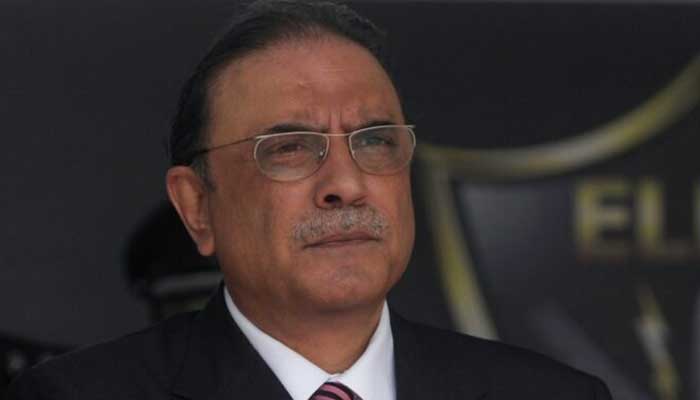
- President raises eight objections over bill under which madrasas would be registered.
- Registration of seminaries would lead to spread of sectarianism, says Zardari.
- President says provisions of bill show contradiction in definition of madrasa.
ISLAMABAD: President Asif Ali Zardari expressed fear that if the madrassa bill turns into a law, seminaries will be registered under the Societies Act, which may lead to imposition of Financial Action Task Force (FATF), Generalised Scheme of Preferences Plus (GSP+), and other sanctions on the country.
As per the sources on Friday, the president raised eight objections over the bill ‘Societies Registration (Amendment) Bill 2024′, under which madrassas would be registered.
He highlighted a potential conflict of interest arising from the registration process and expressed concerns on potential negative consequences for Pakistan’s international standing and internal stability.
President Zardari had returned the ‘Societies Registration (Amendment) Bill 2024’ earlier this month with raising objections on it.
According to the objections, raised by the president, the registration of religious seminaries under the law would lead to spread of sectarianism and establishment of many seminaries in the same society would lead to deterioration of the law and order situation.
The president objected that there was a contradiction in the definition of madrasa in various provisions of the new bill.
Referring to the Madrassa Education Board Ordinance 2001 and the Islamabad Capital Territory Trust Act 2020, he said that the new legislation could not be enacted in the presence of both acts.
Moreover, the president said the Societies Registration Act 1860 was applicable within the limits of Islamabad; the clause regarding the applicability of the new amendments only in Islamabad was not included in the bill.
He objected that by registering madrassas as societies, they could be used for purposes other than education; there was a contradiction in the definition of madrassa in various clauses of the bill.
The registration of madrassas in the society would lead to a conflict of interest and such a conflict of interest would also lead to international criticism, while the approval of the bill could lead to a change in the FATF and other international organisations’ opinions and ratings of Pakistan, the objection by the president said.
Additionally, he said there was no mention of madrassa in the preamble of the Societies Registration Act 1860; therefore, inclusion of madrassa education in the new bill would create a contradiction with the preamble of the 1860 Act.
The objection stated that if the registration of madrassas was started through the Societies Act, the grip of the law might become weak. He said in his objection that the Society Registration Act 1860 included fine arts education including dance classes, art classes, etc.
The president suggested to the members of the assembly that international issues should be taken into account while drafting a bill related to madrassas.
Meanwhile, Jamiat Ulema-e-Islam-Fazl (JUI-F) said on Friday that President Zardari did not follow the constitutional and legal procedure while raising objections to the Societies Registration (Amendment) Bill, 2024.
The bill concerns registration of madrassas (seminaries).
In a statement, JUI-F spokesperson Aslam Ghori said it seemed President Zardari was facing external pressure and that was why he had raised objections.
Furthermore, the JUI-F leader said the president did not raise objection within the stipulated period as mentioned in the Constitution.
He added that the president had raised the objections for the second time after his objections raised in the first instance had been responded.
“The president has no right to raise objections for the second time,” he said.
He also pointed out that the objections should have been sent to the speaker but it was not done. Moreover, he said the objections as sent to the speaker were responded.



